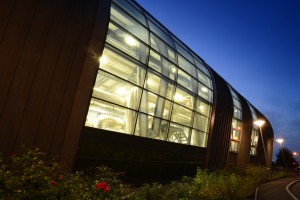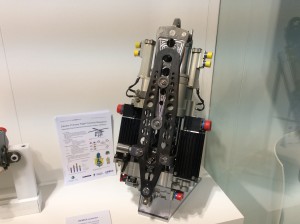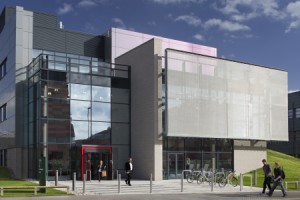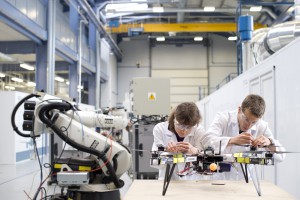
August 17, 2015, by Herve Morvan
The IAT: Enabling Aerospace Research and Innovation for the Aerospace Sector in the UK
The global aerospace market is buoyant, to say the least. Over the next 20 years, the original equipment market is forecast to exceed $5trn globally, with services exceeding over $2trn. It is predicted that by 2033, 57,000 new fixed wing aircraft and 40,000 new helicopters will be required.
The UK is at the forefront of these developments and is home to the largest aerospace sector in Europe and the second largest in the world; employing more than 230,000 people across over 3000 companies, including Rolls Royce, Airbus, Agusta Westland and GKN, and a vast network of small and medium size enterprises. It is a high value-added, research and development intensive sector, where investment can and has resulted in substantial benefits, anchoring outputs and jobs for decades to come.
Recent UK Government policy has sought to protect and develop the UK aerospace sector. In 2010 the coalition Government, working closely with the UK aerospace industry, established the Aerospace Growth Partnership (AGP) as a way of tackling barriers to growth, boosting exports and growing the number of high value jobs in the UK. In 2013, building on the success of the AGP, the Aerospace Technology Institute (ATI) was launched to sustain and grow the UK’s internationally competitive aerospace sector through investment in technologies consistent with aircraft updates, new aircraft and the sector’s strengths. The ATI has secured over £2.1bn in R&D funding to support the sector and since its establishment, has funded in excess of 140 projects UK wide.
Also aware of these opportunities and building on a strong aerospace research heritage, the University of Nottingham established the Institute of Aerospace Technology (IAT) in 2009, pre-empting both government and the formation of the ATI. The remit of the IAT is to integrate, develop and promote the University’s aerospace research portfolio and vision, making it accessible and directly useful to its partners by bridging the gap between research and its exploitation in industry and for society.

The Aerospace Technology Centre (ATC), home to the IAT on The University of Nottingham Innovation Park (UNIP)
The Institute for Aerospace Technology (IAT)
Since its establishment, the IAT has been instrumental in the growth of Nottingham’s aerospace research portfolio from £35m in 2010 to over £75m in 2015 and has assisted in further positioning Nottingham as one of the leading aerospace Universities in Europe; linking together research excellence at a Russell Group University with exploitation, knowledge exchange and innovative developments with and for industry.
The IAT works closely with a range of national and international aerospace industry and research partners to address key global challenges and drive the development of innovative technological research focused on underpinning technologies based around five key strategic areas. These are:
- Aero Engines and Propulsion
Researchers at Nottingham are carrying out cutting edge research to improve engine performance and efficiency. The University is home to two Rolls Royce University Technology Centres and one of the UK’s Synthetic Biology Research Centres which is carrying out innovative research into biofuels.
- Aerospace Manufacturing
Nottingham has substantial expertise in aerospace manufacturing across a broad range of areas, including additive manufacturing, machining, process control and optimisation. The University is home to the Airbus Centre for Advanced Manufacturing and hosts two EPSRC Centres in Innovative Manufacturing, in Composite Manufacturing and Additive Manufacturing respectively. In addition, the University was also a founding partner of the Manufacturing Technology Centre (MTC) and collaborates with the National Composites Centre (NCC).
- Aerospace Materials and Structures
Scientists and engineers at Nottingham work closely with leading aerospace equipment manufacturers to develop and analyse exciting next-generation materials designed to produce lighter, safer, more fuel efficient aircraft. Sustainability means that the recycling of materials is another central concept, e.g. for composite materials. The University is home to the EPSRC Nottingham Nanotechnology and Nanoscience Centre (NNNC) and is also a key member of the UK Research Centre in Non-Destructive Evaluation.
- Aerospace Operations
As the aviation industry grows, there are increased challenges around capacity, sustainability, passenger comfort, safety, supply chains and security. Nottingham is home to a range of high profile centres and institutes with a focus on addressing these challenges, these include: the Nottingham Geospatial Institute, the Nottingham Transportation Engineering Centre, the Centre for Risk and Reliability Engineering and the Automated Scheduling, Optimisation and Planning Research Group.
- More Electric Aircraft
The development of more electric aircraft is a key priority for the future of the aerospace sector. Home to the largest power electronics research group in the world and the George Green Institute for Electromagnetics Research, Nottingham is at the cutting edge of this, with internationally renowned expertise in power management, control and distribution, electrical machines and electromagnetic protection. Integration activities are already taking place between power electronics and both the aeroengine and propulsion and the manufacturing teams, but also colleagues involved in fuel cells research, to help shape the future of propulsion and on board power generation and distribution.
A Research Leader in Europe
Across these strategic areas, the University has been successful in gaining funding for a suite of research projects. These include a number of projects funded through the EU-funded Clean Sky Joint Technology Initiative; a major European Aerospace Programme that brings together industry, academia and research centres to deliver next generation technologies for lowering pollution and safeguarding the leading position of the sector. The University of Nottingham was the only university to be awarded Associate Partner status in its own right in Clean Sky and is currently a Core Partner in the €4.2bn Clean Sky 2 programme. Through this funding, researchers from the University are working with a series of UK and European Aerospace companies to develop a range of exciting next generation technologies such as the Helicopter Electro Mechanical Actuation System shown below and on display at the Paris Airshow last June.

Electromechanical actuator for helicopters developed in partnership with Liebherr Group and Airbus Group Innovations on display on the Clean Sky booth at the Paris Airshow, June 2015
Working with the ATI to Drive Forward Aerospace Research in the UK
The IAT has also secured substantial funding from the ATI. This includes infrastructure funding to establish a national transmissions testing facility to research and develop future aircraft large engine, rotorcraft, industrial and gas turbine transmissions. Through funding from the ATI, the IAT has also developed a series of collaborative projects and strategic partnerships with global aviation leaders.

The newly formed Gas Turbine & Transmissions Research Centre (G2TRC) will host an ATI-funded national transmissions testing facility in the Energy Technologies Building on the University of Nottingham’s Innovation Park
One of the IAT raison d’être is to contribute fully to the UK aerospace effort and support the ATI in the attainment of its vision and goals, working alongside and for key industrial players who are part of the UK aerospace fabric, and providing them with the locus, technical infrastructure and expertise to come to, to support their ambition and success. Nottingham is well placed to support at least 3 of the 4 main value streams in the ATI strategy, as presented last month in London.
Supporting and Working with SME’s
Small and Medium-size Enterprises (SME’s) are central to the aerospace supply chain and pivotal to employment and employment creation in the UK. Therefore, as well as working with leading national and international aerospace companies, the IAT is also committed to supporting SME’s and is a member of The University of Nottingham’s Ingenuity Network for example. This extensive business support network is part funded by the European Union and aims to transfer knowledge and expertise from the University into local and regional small and medium sized businesses. On other fronts, the IAT is an active member of the Midlands Aerospace Alliance and is supporting NATEP. The IAT has contributed to translating this key interest in funding opportunities for and with SME’s; it was recently awarded a significant research award by the ATI with local SME Romax for example. Such experience and interactions mean that Nottingham can support large aerospace integrators, e.g. by helping coordinate the research activities in part of their supply chain.
Leading Innovation
The Institute sits at the interface between university, industrial partners, government and funding bodies: acting as the bridge between academic excellence and industry, accelerating knowledge transfer and the exploitation of research, and supporting technological innovation for the sector. To assist in driving collaboration between academia and industry, the Institute has been successful in gaining funding to facilitate the development of infrastructure and facilities. These include a £5.1m Aerospace Technology Centre (ATC), based on the University of Nottingham’s Innovation Park. The ATC is a research and knowledge transfer hub, which provides state of the art facilities and support for the development of large scale demonstrations. As a testament of its translational effort, it is worth mentioning that last year one of its UTC’s was awarded the best patent award by Rolls-Royce.
Improving Education & Skills
The IAT sees skills development as a key priority for the sector and will be supporting the launch of a new Aerospace Engineering undergraduate programme during 2016-17. The IAT is also home to the University’s MSc Aerospace Technologies course and supports the development of world-class students. The Institute has been successful in gaining funding from the European Commission’s Marie Skłodowska-Curie actions to launch two multi-disciplinary PhD programmes, INNOVATE and INNOVATIVE, which collectively provide an additional 37 PhD studentships related to aerospace research at the IAT.
Building on these strategic interventions, The University of Nottingham is advancing its position as one of the leading Aerospace Universities in Europe by continuing to develop its European and UK research portfolio and further expanding its portfolio of fundamental science research to ensure that the UK aerospace sector continues to push the boundaries in terms of research innovation. The IAT is working with key partners in industry and government to align its efforts to their needs and support the UK position in the global aerospace landscape. In doing so, it also contributes to maintaining the tradition of research excellence associated to the UK and its top universities.
For further information on the Institute of Aerospace Technology contact: IAT@nottingham.ac.uk
You can also visit: http://www.nottingham.ac.uk/aerospace/index.aspx or follow us on Twitter at: @UoNAerospace
With significant contributions from Victoria Macfarlane and Chris Guest from the IAT Core Team.
No comments yet, fill out a comment to be the first


Leave a Reply